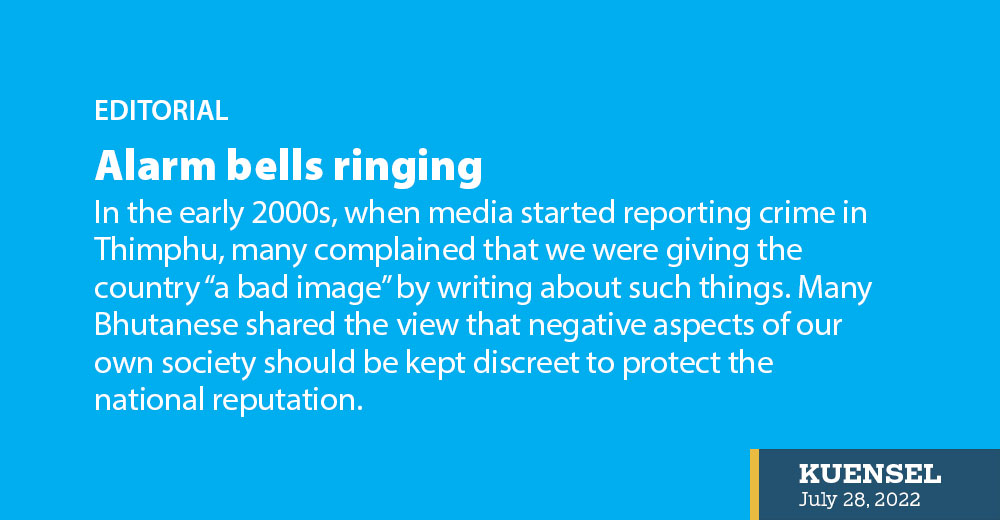In the early 2000s, when media started reporting crime in Thimphu, many complained that we were giving the country “a bad image” by writing about such things. Many Bhutanese shared the view that negative aspects of our own society should be kept discreet to protect the national reputation.
Another view in Bhutan was that crime was not a problem because it was all under control. Crime in Bhutan was just petty and every criminal, including juveniles, was being monitored and watched. We did not have a serious problem and, compared with other countries, issues like crime and corruption were negligible. Therefore, writing about it was exaggerating the problem.
Today, after about two decades, we have people being injured in gang fights, the rape of minors is becoming more common, officials are imprisoned for corruption, we cannot leave sacred sites unprotected, and we all know that this is just the tip of the iceberg. Suddenly it is not an exaggeration.
The problem, as we see over and over again, is not the crime itself but the trend. But the real issue is our refusal or inability to acknowledge it and deal with it on time. In most cases, the same people sit down to discuss the same problems and we see the same problems continue.
It is not just corruption and crime. We are encroaching on our pristine environment step by step, by generating non-bio-degradable garbage, accelerating the import of motor vehicles and other machines that emit poisonous gases, and generally increasing our consumption of material goods.
While we have always maintained that our country is a special place we are suddenly struck by the realisation that we, ourselves, are vulnerable to all the temptations that have affected other places and societies. And if such trends are not checked Bhutan will not be special for much longer. With only months left for tourism to reopen, interventions are needed urgently.
Practical wisdom shows us that problems like corruption and crime are directly proportional to the steps taken to deal with them.
As we hear of dozens of people being treated for physical injuries inflicted by fellow citizens and properties damaged at random, as we listen to or read about more criminal acts taking place every week, and as corruption becomes a national concern, we ask ourselves the same questions yet again. Are the anti-corruption institutions adequately equipped? Is the police force strong enough? Are our laws relevant and practical? Can we do anything differently?


